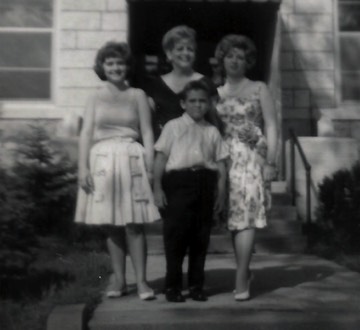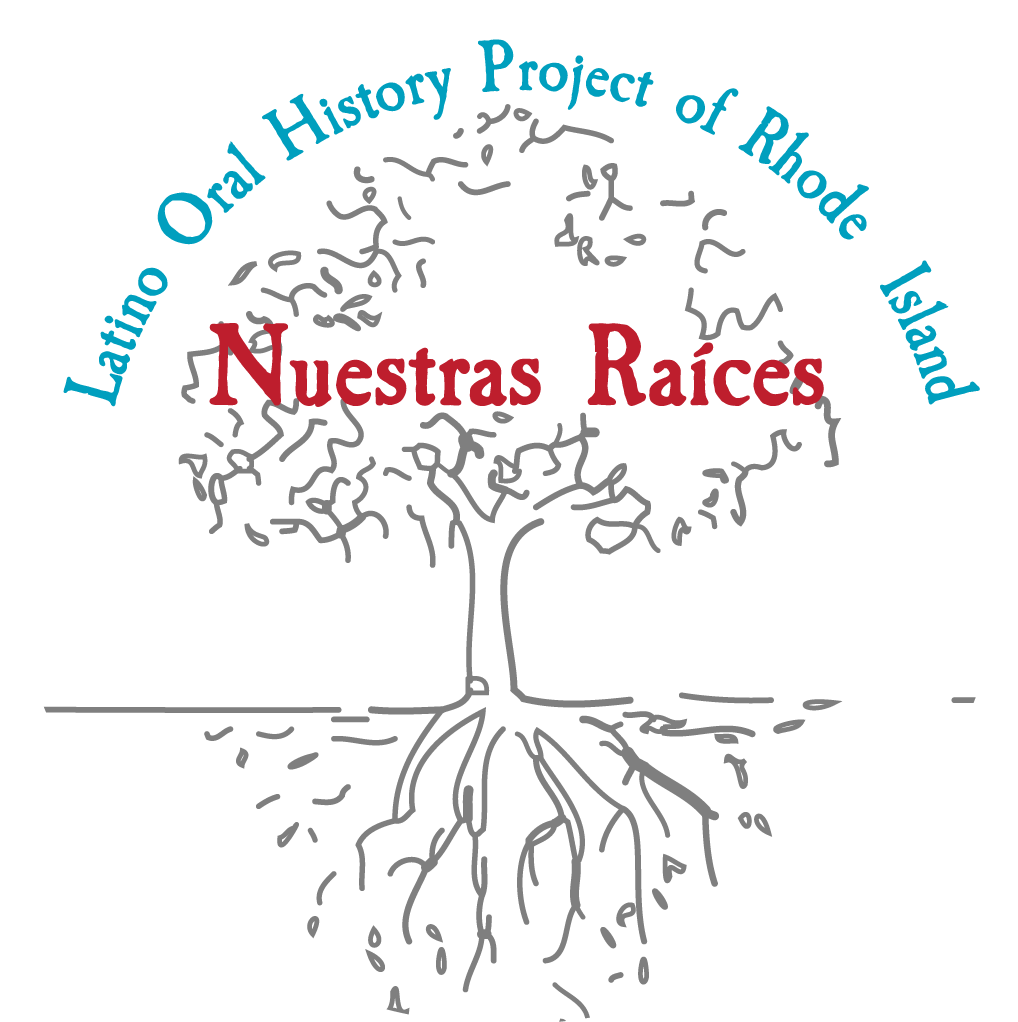
Miriam and her siblings are reunited with their mother in Dubuque
Meanwhile, in Iowa, we didn’t know what had happened. We knew that he had done something, and we didn’t know what had happened, because he couldn’t get in touch with us. But finally, he called us in Dubuque. When he first contacted us, we were so thrilled!
And then, my parents talked things over, and they decided that my father had to do something because there was no question now that we were staying here in the U.S.
What they decided was that my father would take an exam so that he could practice medicine in the U.S. All foreign doctors, the first thing that they have to do to practice medicine in the U.S. is to take what they call “the ECFMG exam.” So my father said, “I have to do it.” Because his English was so-so, he was worried about that. He then spent three intensive months training, learning English and studying, so that he could take the exam. And then he took it, and he passed.
He was still in Florida when he was doing this. He said it was better that he was by himself so he wouldn’t be distracted, and so he could just concentrate on this before he came to meet us.
And then, my parents talked things over, and they decided that my father had to do something because there was no question now that we were staying here in the U.S.
What they decided was that my father would take an exam so that he could practice medicine in the U.S. All foreign doctors, the first thing that they have to do to practice medicine in the U.S. is to take what they call “the ECFMG exam.” So my father said, “I have to do it.” Because his English was so-so, he was worried about that. He then spent three intensive months training, learning English and studying, so that he could take the exam. And then he took it, and he passed.
He was still in Florida when he was doing this. He said it was better that he was by himself so he wouldn’t be distracted, and so he could just concentrate on this before he came to meet us.
And, something that happened during that time that to me was a wonderful thing is that I became closer to my father. He wrote to me a lot while we were in Miami and also when we moved to Dubuque. I had never really been that close to my father. I was close to my mother when we were younger, but not with my father, because he was always so busy working. So while I was in Dubuque, we would write to each other all the time, and we got very close in those letters. And we were very happy. I do think this happened because of the time we spent apart. Yes, I’m sure of that. I’m sure it would have never happened in Cuba. And I became like his right hand in many ways after we moved to Rhode Island, up until the time he and my mother left to go back to Miami in 1974.
So, yes, there are always bad things that come from these events in life, but also there are some good things that sometimes come out of experiences like that.
After we arrived in Rhode Island, we lived in Pawtucket because my father was going to work at Pawtucket Memorial Hospital, he was doing his residency there. We lived in Pawtucket in one of those triple decker houses.
When my father passed the medical exam, he applied to different hospitals around the country. It happened that there were other Cuban doctors at Pawtucket Memorial, like Dr. Blas Moreno, for example. The hospital was recruiting and my father happened to know another Cuban doctor who had graduated with him, who was working at Pawtucket Memorial, and she urged him to come. He moved to Rhode Island in January of 1963.
It was not until the Spring of 1963 that the rest of us joined my father in Rhode Island, and believe it or not, we felt like it was paradise because after we arrived, we realized how much we missed the ocean. We were living in the Midwest for all that time, where there was no ocean, and in Cuba we were accustomed to being surrounded by water!
So, yes, there are always bad things that come from these events in life, but also there are some good things that sometimes come out of experiences like that.
After we arrived in Rhode Island, we lived in Pawtucket because my father was going to work at Pawtucket Memorial Hospital, he was doing his residency there. We lived in Pawtucket in one of those triple decker houses.
When my father passed the medical exam, he applied to different hospitals around the country. It happened that there were other Cuban doctors at Pawtucket Memorial, like Dr. Blas Moreno, for example. The hospital was recruiting and my father happened to know another Cuban doctor who had graduated with him, who was working at Pawtucket Memorial, and she urged him to come. He moved to Rhode Island in January of 1963.
It was not until the Spring of 1963 that the rest of us joined my father in Rhode Island, and believe it or not, we felt like it was paradise because after we arrived, we realized how much we missed the ocean. We were living in the Midwest for all that time, where there was no ocean, and in Cuba we were accustomed to being surrounded by water!
